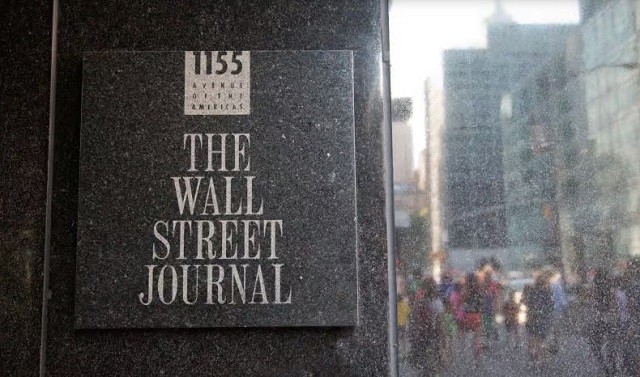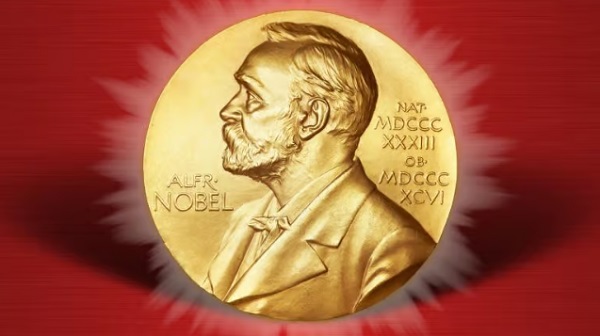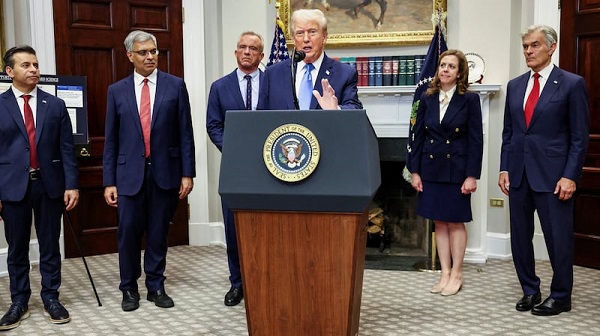Brownstone Institute
Come On, Peggy Noonan, Just Say You Were Wrong

From the Brownstone Institute
BY
The answer to the question “Will they ever admit to being wrong?” is of course: no. I’m speaking in particular of the architects of the lockdown and mandate policies that wrecked the rights and liberties of billions worldwide.
Now they want to pretend like it never happened or that someone else is responsible. And they do this even as they hammer out policies and treaties that normalize that exact response – ok some tweaks here and there – in the future, while forging institutions that crush dissent.
Those people we know about. They are rather hopeless.
Let’s address a different case, the run-of-the-mill pundit who got it wrong and just cannot admit it. These are the people who should trouble us more because saying sorry in this case is completely cost-free. In fact, the opposite is true. Readers would cheer their humility and congratulate them for honesty. The only cost would be psychological in some measure. They are supposed to be these great opinion leaders and cannot bring themselves to admit that they were so bloody wrong on such a huge topic.
This comes to mind because of an effusive and even absurdist article by Peggy Noonan in the Wall Street Journal. It was about how and why Taylor Swift is the greatest thing America has to offer. The language here is intentionally over the top and she knows it. It’s a fun way to write. I know this because I used to write this way all the time, celebrating the glories of vending machine chicken salad or the McDonald’s cheese stick or what have you.
My argument here is not with the hyperbole as such. The problem comes deep into the article where she says the following: “Downtowns across the country—uniquely battered by the pandemic and the riots and demonstrations of 2020—are, while she is there, brought to life, with an influx of visitors and a local small business boom. Wherever she went it was like the past three years didn’t happen.”
Battered by the pandemic? Seriously? The pathetic pathogen never closed a single business, school, church, country club, arts theater, mall, stadium or public park. Governments did that, on the advice of crazed experts who pushed for this nonsense with no concern for public well-being. Media got involved cheering the lockdowns and denouncing anyone who doubted their glories. Big Tech censored dissident voices.
Noonan could have fixed that sentence with the addition of one word: response. The pandemic response. It would be easy enough to type that word. Sure, that’s a bit lame but at least it is accurate.
Why does she refuse? You know the answer. She was among the panic-mongers who thought the lockdowns, masks, and vaccine mandates were just fine. She wrote about it constantly.
I don’t know why, but she did. She has assiduously avoided admitting this for years now, even to the point of writing about the “great resignation” without ever mentioning lockdowns or vaccine mandates. She mentions in passing that “At the height of the pandemic more than 120,000 businesses temporarily closed” but does not mention they were closed by force! She continually refers to the “shock of the pandemic” without mentioning that it was the shock of the pandemic response.
Her penchant here runs far back even to the vaccine rollout, which she called a “human and scientific miracle.” Whoops.
Even at the onset of lockdowns, she was all in: “We should go forward with a new national commitment to masks, social distancing, hand washing. These simple things have proved the most valuable tools in the tool chest. We have to enter each day armored up.”
Ok, Peggy, we get it. You bought all the propaganda. Many did. We corresponded at the time and it was very cordial…until you realized that I was on the anti-lockdown side. It didn’t matter after that whatever evidence I presented to you that the government was up to no good. I sent link after link and was very friendly.
At that point, you stopped replying, despite having many mutual friends. I was not being antagonistic. I was simply hoping that you would get ahead of the curve. You didn’t want to get ahead of the curve. You wanted to thread the needle of opinion very carefully.
The trouble is that the needle changed or went away completely. Now you are stuck with your old opinions of the past, which you keep trying to justify in the least auspicious way possible. Today’s article was the latest example. I assume that you are going to keep this up so long as the WSJ affords you the space.
I cannot say that I fully understand this way of thinking. But this much is clear: Peggy is hardly alone. Nearly every writer in every venue talks this way. Finally, the media is talking about ill-health, learning loss, shut businesses, demoralized population, angry voters, loss of trust, inflation, you name it. Finally there is talk about all of this.
But universally, the prattle is the same. It’s always the pandemic, never the government’s response.
- “9 Ways the Pandemic May Have Led to Precocious Puberty” ~ Psychology Today
- “Kids Played Team Sports Less In 2022 Than Before Covid-19 Pandemic” ~ Forbes
- “Walking trips fall sharply in Portland post-pandemic” ~ Axios
- “Mesilla restaurant owner navigates pandemic recovery” ~ Fox
And so on it goes, as if to wipe out the history of the worst public health policy in the history of humanity. Plenty of people want to do that. Certainly most governments in the world would like that. Regardless, pundits should not help them. Even if they were wrong in the past, nothing is stopping them from admitting the truth now.
It would be nice if we would get some truth from politicians too rather than this strange silence. No one has had the guts to grill Trump in particular on the details of why he green-lighted the mess.
That aside, the pundit class is paid not to be government propagandists but tellers of truth. In this case, it simply would not take much, only a bit more than claiming that a single pathogen among trillions floating around caused the whole world to fly into upheaval.
Truly, these writers discredit themselves with their contorted attempts to pretend that the microbial kingdom and not government itself is responsible for disaster.
The truth is nonetheless getting out there, even if you cannot read about it often in mainstream news. We have to get this history correct. Everything depends on it.
Brownstone Institute
Trump Covets the Nobel Peace Prize

From the Brownstone Institute
By
Many news outlets reported the announcement of the Nobel Peace Prize on Friday by saying President Donald Trump had missed out (Washington Post, Yahoo, Hindustan Times, Huffington Post), not won (USA Today), fallen short (AP News), lost (Time), etc. There is even a meme doing the rounds about ‘Trump Wine.’ ‘Made from sour grapes,’ the label explains, ‘This is a full bodied and bitter vintage guaranteed to leave a nasty taste in your mouth for years.’

For the record, the prize was awarded to María Corina Machado for her courageous and sustained opposition to Venezuela’s ruling regime. Trump called to congratulate her. Given his own attacks on the Venezuelan president, his anger will be partly mollified, and he could even back her with practical support. He nonetheless attacked the prize committee, and the White House assailed it for putting politics before peace.
He could be in serious contention next year. If his Gaza peace plan is implemented and holds until next October, he should get it. That he is unlikely to do so is more a reflection on the award and less on Trump.
So He Won the Nobel Peace Prize. Meh!
Alfred Nobel’s will stipulates the prize should be awarded to the person who has contributed the most to promote ‘fraternity between nations…abolition or reduction of standing armies and…holding and promotion of peace congresses.’ Over the decades, this has expanded progressively to embrace human rights, political dissent, environmentalism, race, gender, and other social justice causes.
On these grounds, I would have thought the Covid resistance should have been a winner. The emphasis has shifted from outcomes and actual work to advocacy. In honouring President Barack Obama in 2009, the Nobel committee embarrassed itself, patronised him, and demeaned the prize. His biggest accomplishment was the choice of his predecessor as president: the prize was a one-finger send-off to President George W. Bush.
There have been other strange laureates, including those prone to wage war (Henry Kissinger, 1973), tainted through association with terrorism (Yasser Arafat, 1994), and contributions to fields beyond peace, such as planting millions of trees. Some laureates were subsequently discovered to have embellished their record, and others proved to be flawed champions of human rights who had won them the treasured accolade.
Conversely, Mahatma Gandhi did not get the prize, not for his contributions to the theory and practice of non-violence, nor for his role in toppling the British Raj as the curtain raiser to worldwide decolonisation. The sad reality is how little practical difference the prize has made to the causes it espoused. They bring baubles and honour to the laureates, but the prize has lost much of its lustre as far as results go.
Trump Was Not a Serious Contender
The nomination processes start in September and nominations close on 31 January. The five-member Norwegian Nobel committee scrutinises the list of candidates and whittles it down between February and October. The prize is announced on or close to 10 October, the date Alfred Nobel died, and the award ceremony is held in Oslo in early December.
The calendar rules out a newly elected president in his first year, with the risible exception of Obama. The period under review was 2024. Trump’s claims to have ended seven wars and boasts of ‘nobody’s ever done that’ are not taken seriously beyond the narrow circle of fervent devotees, sycophantic courtiers, and supplicant foreign leaders eager to ingratiate themselves with over-the-top flattery.
Trump Could Be in Serious Contention Next Year
Trump’s 20-point Gaza peace plan falls into three conceptual-cum-chronological parts: today, tomorrow, and the day after. At the time of writing, in a hinge moment in the two-year war, Israel has implemented a ceasefire in Gaza, Hamas has agreed to release Israeli hostages on 13-14 October, and Israel will release around 2,000 Palestinian prisoners (today’s agenda). So why are the ‘Ceasefire Now!’ mobs not out on the streets celebrating joyously instead of looking morose and discombobulated? Perhaps they’ve been robbed of the meaning of life?
The second part (tomorrow) requires Hamas demilitarisation, surrender, amnesty, no role in Gaza’s future governance, resumption of aid deliveries, Israeli military pullbacks, a temporary international stabilisation force, and a technocratic transitional administration. The third part, the agenda for the day after, calls for the deradicalisation of Gaza, its reconstruction and development, an international Peace Board to oversee implementation of the plan, governance reforms of the Palestinian Authority, and, over the horizon, Palestinian statehood.
There are too many potential pitfalls to rest easy on the prospects for success. Will Hamas commit military and political suicide? How can the call for democracy in Gaza and the West Bank be reconciled with Hamas as the most popular group among Palestinians? Can Israel’s fractious governing coalition survive?
Both Hamas and Israel have a long record of agreeing to demands under pressure but sabotaging their implementation at points of vulnerability. The broad Arab support could weaken as difficulties arise. The presence of the internationally toxic Tony Blair on the Peace Board could derail the project. Hamas has reportedly called on all factions to reject Blair’s involvement. Hamas official Basem Naim, while thanking Trump for his positive role in the peace deal, explained that ‘Palestinians, Arabs and Muslims and maybe a lot [of] people around the world still remember his [Blair’s] role in causing the killing of thousands or millions of innocent civilians in Afghanistan and Iraq.’
It would be a stupendous achievement for all the complicated moving parts to come together in stable equilibrium. What cannot and should not be denied is the breathtaking diplomatic coup already achieved. Only Trump could have pulled this off.
The very traits that are so offputting in one context helped him to get here: narcissism; bullying and impatience; bull in a china shop style of diplomacy; indifference to what others think; dislike of wars and love of real estate development; bottomless faith in his own vision, negotiating skills, and ability to read others; personal relationships with key players in the region; and credibility as both the ultimate guarantor of Israel’s security and preparedness to use force if obstructed. Israelis trust him; Hamas and Iran fear him.
The combined Israeli-US attacks to degrade Iran’s nuclear capability underlined the credibility of threats of force against recalcitrant opponents. Unilateral Israeli strikes on Hamas leaders in Qatar highlighted to uninvolved Arabs the very real dangers of continued escalation amidst the grim Israeli determination to rid themselves of Hamas once and for all.
Trump Is Likely to Be Overlooked
Russia has sometimes been the object of the Nobel Peace Prize. The mischievous President Vladimir Putin has suggested Trump may be too good for the prize. Trump’s disdain for and hostility to international institutions and assaults on the pillars of the liberal international order would have rubbed Norwegians, among the world’s strongest supporters of rules-based international governance, net zero, and foreign aid, the wrong way.
Brash and public lobbying for the prize, like calling the Norwegian prime minister, is counterproductive. The committee is fiercely independent. Nominees are advised against making the nomination public, let alone orchestrating an advocacy campaign. Yet, one laureate is believed to have mobilised his entire government for quiet lobbying behind the scenes, and another to have bad-mouthed a leading rival to friendly journalists.
Most crucially, given that Scandinavian character traits tip towards the opposite end of the scale, it’s hard to see the committee overlooking Trump’s loud flaws, vanity, braggadocio, and lack of grace and humility. Trump supporters discount his character traits and take his policies and results seriously. Haters cannot get over the flaws to seriously evaluate policies and outcomes. No prizes for guessing which group the Nobel committee is likely to belong to. As is currently fashionable to say when cancelling someone, Trump’s values do not align with those of the committee and the ideals of the prize.
Autism
Trump Blows Open Autism Debate

From the Brownstone Institute
By
Trump made sweeping claims that would have ended political careers in any other era. His health officials tried to narrow the edges, but the President ensured that the headlines would be his.
Autism has long been the untouchable subject in American politics. For decades, federal agencies tiptoed around it, steering research toward genetics while carefully avoiding controversial environmental or pharmaceutical questions.
That ended at the White House this week, when President Donald Trump tore through the taboo with a blunt and sometimes incendiary performance that left even his own health chiefs scrambling to keep pace.
Flanked by Health Secretary Robert F. Kennedy, Jr., NIH Director Jay Bhattacharya, FDA Commissioner Marty Makary, CMS Adminstrator Dr Mehmet Oz, and other senior officials, Trump declared autism a “horrible, horrible crisis” and recounted its rise in startling terms.
“Just a few decades ago, one in 10,000 children had autism…now it’s one in 31, but in some areas, it’s much worse than that, if you can believe it, one in 31 and…for boys, it’s one in 12 in California,” Trump said.
The President insisted the trend was “artificially induced,” adding: “You don’t go from one in 20,000 to one in 10,000 and then you go to 12, you know, there’s something artificial. They’re taking something.”
Trump’s Blunt Tylenol Warning
The headline moment came when Trump zeroed in on acetaminophen, the common painkiller sold as Tylenol — known as paracetamol in Australia.
While Kennedy and Makary described a cautious process of label changes and physician advisories, Trump dispensed with nuance.
“Don’t take Tylenol,” Trump said flatly. “Don’t take it unless it’s absolutely necessary…fight like hell not to take it.”
Kennedy laid out the evidence base, citing “clinical and laboratory studies that suggest a potential association between acetaminophen used during pregnancy and adverse neurodevelopmental outcomes, including later diagnosis for ADHD and autism.”
Makary reinforced the point with references to the Boston Birth Cohort, the Nurses’ Health Study, and a recent Harvard review, before adding: “To quote the dean of the Harvard School of Public Health, there is a causal relationship between prenatal acetaminophen use and neurodevelopmental disorders of ADHD and autism spectrum disorder. We cannot wait any longer.”
But where the officials spoke of “lowest effective dose” and “shortest possible duration,” Trump thundered over the top: “I just want to say it like it is, don’t take Tylenol. Don’t take it if you just can’t. I mean, it says, fight like hell not to take it.”
Vaccines Back on Center Stage
The President then pivoted to vaccines, reviving arguments that the medical establishment has long sought to bury. He blasted the practice of giving infants multiple injections at a single visit.
“They pump so much stuff into those beautiful little babies, it’s a disgrace…you get a vat of 80 different vaccines, I guess, 80 different blends, and they pump it in,” Trump said.
His solution was simple: “Go to the doctor four times instead of once, or five times instead of once…it can only help.”
On the measles, mumps, and rubella shot, Trump insisted: “The MMR, I think should be taken separately…when you mix them, there could be a problem. So there’s no downside in taking them separately.”
The moment was astonishing — echoing arguments that had once seen doctors like Andrew Wakefield excommunicated from medical circles.
It was the kind of line of questioning the establishment had spent decades trying to banish from mainstream debate.
Hep B Vaccine under Attack
Trump dismissed the rationale for giving the hepatitis B vaccine at birth.
“Hepatitis B is sexually transmitted. There’s no reason to give a baby that’s just born hepatitis B [vaccine]. So I would say, wait till the baby is 12 years old,” he said.
He made clear that he was “not a doctor,” stressing that he was simply offering his personal opinion. But the move could also be interpreted as Trump choosing to take the heat himself, to shield Kennedy’s HHS from what was sure to be an onslaught of criticism.
The timing was remarkable.
Only last week, the CDC’s Advisory Committee on Immunisation Practices (ACIP) had been preparing to vote on whether to delay the hepatitis B shot until “one month” of age — a modest proposal that mainstream outlets derided as “anti-vax extremism.”
By contrast, Trump told the nation to push the jab back 12 years. His sweeping denunciations made the supposedly radical ACIP vote look almost tame.
The irony was inescapable — the same media voices who had painted Kennedy’s reshaped ACIP as reckless now faced a President willing to say far more than the panel itself dared.
A New Treatment and Big Research Push
The administration also unveiled what it deemed a breakthrough: FDA recognition of prescription leucovorin, a folate-based therapy, as a treatment for some autistic children.
Makary explained: “It may also be due to an autoimmune reaction to a folate receptor on the brain not allowing that important vitamin to get into the brain cells…one study found that with kids with autism and chronic folate deficiency, two-thirds of kids with autism symptoms had improvement and some marked improvement.”
Dr Oz confirmed Medicaid and CHIP (the Children’s Health Insurance Program, which provides low-cost health coverage to children in families that earn too much to qualify for Medicaid) would cover the treatment.
“Over half of American children are covered by Medicaid and CHIP…upon this label change…state Medicaid programs will cover prescription leucovorin around the country, it’s yours,” said Oz.
Bhattacharya announced $50 million in new NIH grants under the “Autism Data Science Initiative.”
He explained that 13 projects would be funded using “exposomics” — the study of how environmental exposures like diet, chemicals, and infections interact with our biology — alongside advanced causal inference methods.
“For too long, it’s been taboo to ask some questions for fear the scientific work might reveal a politically incorrect answer,” Bhattacharya said. “Because of this restricted focus in scientific investigations, the answers for families have been similarly restricted.”
Mothers’ Voices
The press conference also featured raw testimony from parents.
Amanda, mother of a profoundly autistic five-year-old, told Trump: “Unless you’ve lived with profound autism, you have no idea…it’s a very hopeless feeling. It’s very isolating. Being a parent with a profound autistic child, even just taking them over to your friend’s house is something we just don’t do.”
Jackie, mother of 11-year-old Eddie, said: “I’ve been praying for this day for nine years, and I’m so thankful to God for bringing the administration into our lives…I never thought we would have an administration that was courageous enough to look into things that no prior administration had.”
Their stories underscored what Kennedy said at the announcement about “believing women.” Here were mothers speaking directly about their lived reality, demanding that uncomfortable conversations could no longer be avoided.
Clashes with the Press Corps
Reporters pressed Trump on the backlash from medical groups.
Asked about the American College of Obstetricians and Gynecologists (ACOG) declaring acetaminophen safe in pregnancy, Trump shot back, “That’s the establishment. They’re funded by lots of different groups. And you know what? Maybe they’re right. I don’t think they are, because I don’t think the facts bear it out at all.”
When one journalist raised the argument that rising diagnoses reflected better recognition, Kennedy bristled,
“That’s one of the canards that has been promoted by the industry for many years,” he said. “It’s just common sense, because you’re only seeing this in people who are under 50 years of age. If it were better recognition or diagnosis, you’d see it in the seventy-year-old men. I’ve never seen this happening in people my age.”
Another reporter then asked Trump, “Should the establishment media show at least some openness to trying to figure out what the causes are?”
“I wish they would. Yeah, why are they so close-minded?” Trump replied. “It’s not only the media, in all fairness, it’s some people, when you talk about vaccines, it’s crazy…I don’t care about being attacked.”
Breaking the Spell
For years, autism policy has been shaped by caution, consensus, and deference to orthodox positions. That spell was broken at today’s press conference.
The dynamic was striking. Kennedy, Makary, Bhattacharya, and Oz leaned on scientific papers, review processes, and cautious advisories. Trump, by contrast, brushed it all aside, hammering his message home through repetition and personal anecdotes.
Trump made sweeping claims that would have ended political careers in any other era. His health officials tried to narrow the edges, but the President ensured that the headlines would be his.
“This will be as important as any single thing I’ve done,” Trump declared. “We’re going to save a lot of children from a tough life, really tough life. We’re going to save a lot of parents from a tough life.”
Whatever the science ultimately shows, the politics of autism in America will never be the same.
Republished from the author’s Substack
-

 Energy23 hours ago
Energy23 hours agoMinus Forty and the Myth of Easy Energy
-

 Uncategorized23 hours ago
Uncategorized23 hours agoNew report warns WHO health rules erode Canada’s democracy and Charter rights
-

 Business3 hours ago
Business3 hours agoQuebecers want feds to focus on illegal gun smuggling not gun confiscation
-

 Crime21 hours ago
Crime21 hours agoFrance stunned after thieves loot Louvre of Napoleon’s crown jewels
-

 Business3 hours ago
Business3 hours agoEmission regulations harm Canadians in exchange for no environmental benefit
-

 Frontier Centre for Public Policy1 day ago
Frontier Centre for Public Policy1 day agoOttawa Should Think Twice Before Taxing Churches
-

 Alberta1 day ago
Alberta1 day agoBusting five myths about the Alberta oil sands
-

 Business1 day ago
Business1 day agoUS government buys stakes in two Canadian mining companies










